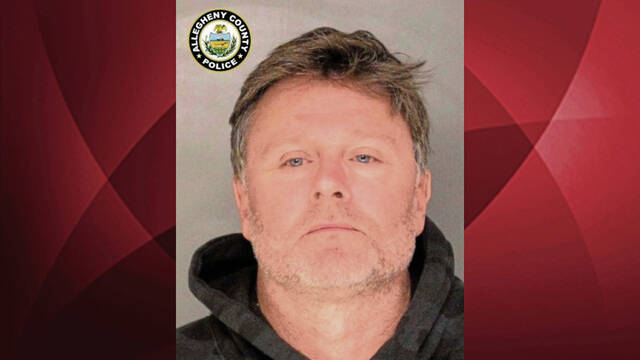A proposal by Gov. Josh Shapiro to slash fees for cyber charter students could save public schools about $262 million a year.
The move has public school officials singing Shapiro’s praises but leaves cyber school administrators anxious and frustrated.
“This narrative that we are overfunded, we don’t agree with that,” said Brian Hayden, CEO of PA Cyber Charter.
The Midland-based organization enrolls 11,000 students.
“Ours is a total school experience,” Hayden said. “We have classes, extracurriculars, field trips and proms. We don’t agree with the math, and we worry that the proposed cap will have a negative impact not only on teaching but the whole school experience that the kids deserve.”
Shapiro’s plan increases basic education funding by $1.1 billion and caps the cost districts would pay for each cyber student at $8,000.
Public schools currently pay between $8,600 and $26,500 per student each year to cyber schools, which are authorized and overseen by the state Department of Education.
They are run as nonprofit public entities and funded with public money from the school districts where their students live.
There were 14 authorized cyber charter schools in 2022-23, with about 57,500 students enrolled, according to the state.
Public school leaders applaud plan
Locally, many districts stand to save if the proposed budget is approved.
Matthew Jones, superintendent of the Jeannette City School District, said a flat fee would benefit the district to the tune of about $420,000, which leaders could redirect to students who attend on-site.
Jeannette paid $1.4 million to various cyber charters across the state last year, Jones said.
“The flat fee of $8,000 would reduce those costs significantly and lessen the burden on local taxpayers,” he said.
“By reducing the costs associated with such a small subgroup of students that attend the cyber charter schools, future tax increases on local citizens become less likely as those financial resources can be reallocated within the district budget and directed specifically to the needs of the students in our buildings.”
The Allegheny Valley School District would pay about half its current fee of $16,159 per cyber student for regular education.
The proposal is a welcome relief, said Hamsini Rajgopal, district director of finance and business operations.
“(The new fee) will better align the tuition rate with the actual costs of providing online education by cyber charter schools.”
Cyber school cost a ‘myth’?
Administrators at some of the state’s largest cyber charter schools argue that “myth.”
“Just because public cyber charter schools deliver an education in an online environment doesn’t mean it costs less to do so,” said Timothy Eller, senior vice president of outreach and government relations for Harrisburg-based Commonwealth Charter Academy.
“CCA is a school community, and we provide live instruction, counselors, school nurses, field trips, job training and opportunities for students who have already been failed in some way by their local district,” Eller said. “Because we are a comprehensive, full-time school, and not a program, we have higher and unique costs in areas in which school districts do not.”
Those include internet reimbursement to families, student computers and technical support, obtaining and delivering technology and curriculum materials to students’ homes, and contracting with service providers throughout the state to provide in-home services to students with special needs.
“We believe what Gov. Shapiro has proposed for public cyber charter school funding is not only unconstitutional, due to it reducing funding to one group of public school students while significantly increasing funding for another group, but it conflicts with his statement that his budget ensures that no school gets less than they did last year,” Eller said.
Public schools: $8K payment ‘fair’
Taj Magruder, press secretary for the Department of Education, said “the antiquated funding formula for cyber charter schools is costing school districts too much money and needs to be updated.
“That’s why the governor is calling for a uniform tuition rate of $8,000 — the amount set by a bill that passed the House of Representatives last year in a bipartisan manner. This better reflects what it actually costs to educate a student at a cyber charter.”
New Ken-Arnold Superintendent Chris Sefcheck said cyber schools are not held accountable to the same academic standards or evaluation measures as public schools.
“Districts, including New Kensington-Arnold, are paying exorbitant rates, which then limits us from providing necessary resources and supports to improve academics,” he said.
Deer Lakes Superintendent Janell Logue-Belden agreed, saying cyber charters aren’t required to have a public budget that accounts for expenses. She said the flat fee is a starting point, but there also needs to be more transparency.
“For all anyone knows, it may cost a fraction of the proposed flat $8,000 rate for each cyber charter student,” Logue-Belden said.
Anthony DeMaro, superintendent at Yough School District, applauded Shapiro’s proposal.
His district paid $1 million in cyber tuition last year for 75 students.
“It is a step in the right direction relative to leveling the playing field for cyber charter tuition costs across all school districts,” DeMaro said.
Likewise, Riverview School District Superintendent Neil English said the potential flat fee would create significant benefits.
“This would free up between $300,000 and $400,000 that can be redistributed to students, staff and local taxpayers,” English said. “I believe that public schools across the commonwealth are appreciative that Gov. Shapiro sees the need for reform and is working to make funding sources to cyber charter schools, from local taxpayers, more equitable.”
Cyber schools concerned
But Eller said the budget cuts would be a detriment to Commonwealth Charter Academy’s operation.
“CCA would have to assess how it would deliver a comprehensive, high-quality public education to students and families,” he said. “This funding cut would require us to reduce teachers and programs for Pennsylvania’s most at-risk populations.”
Hayden said details have been scant so far. He is hoping for further information when state budget hearings begin in the coming weeks.
His school administrators haven’t been able to do a complete financial analysis because they don’t have all the figures in hand yet.
“It’s a little hard to figure out just yet what the impact will be,” he said, noting that PA Cyber enrolls about 18% of all cyber students in the state.
“That equates to about $40 million for us,” he said.
Hayden doesn’t believe the funding cut is good for cyber families.
“Our parents are public school taxpayers,” he said. “Their children deserve a good education.”











